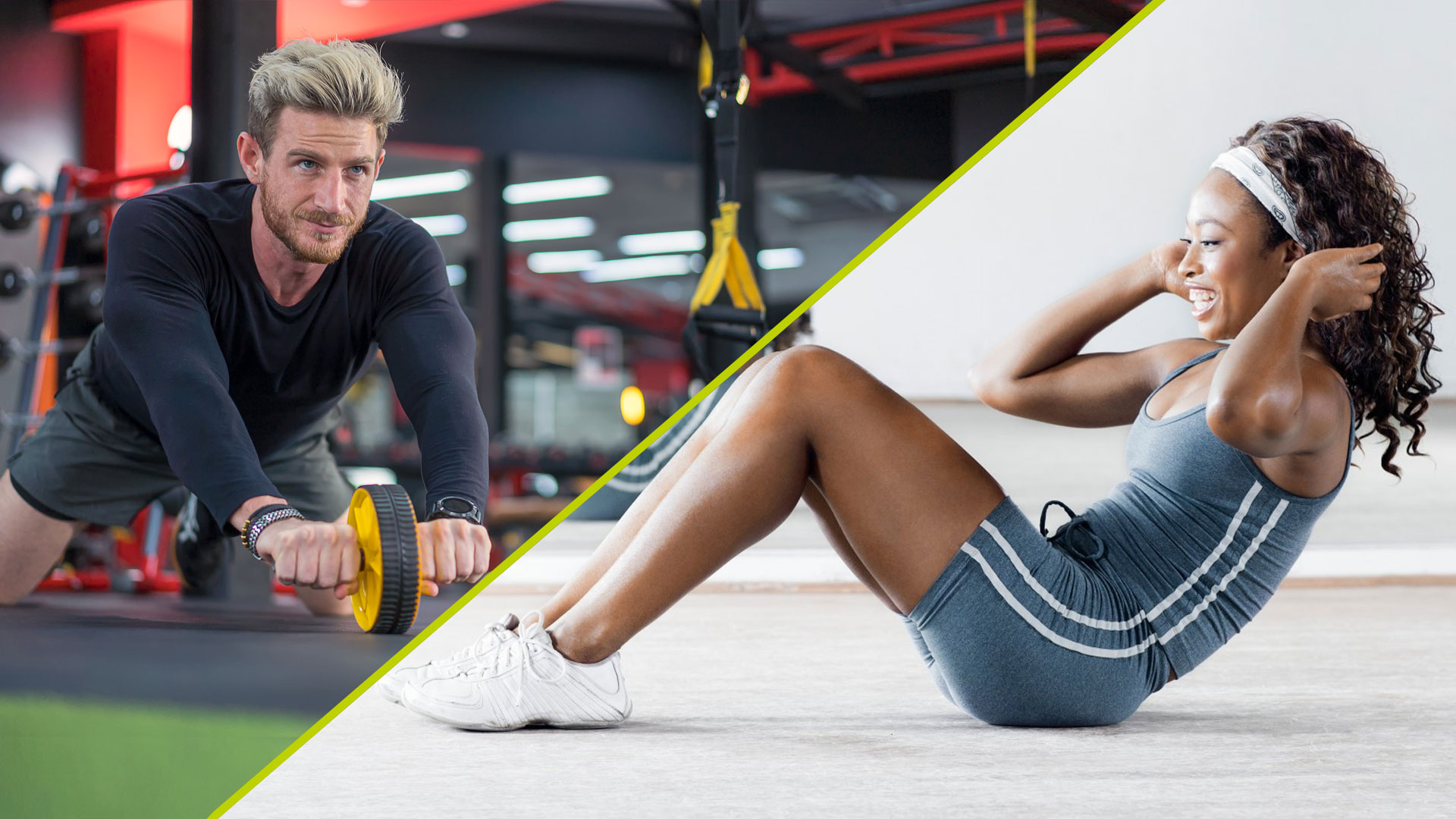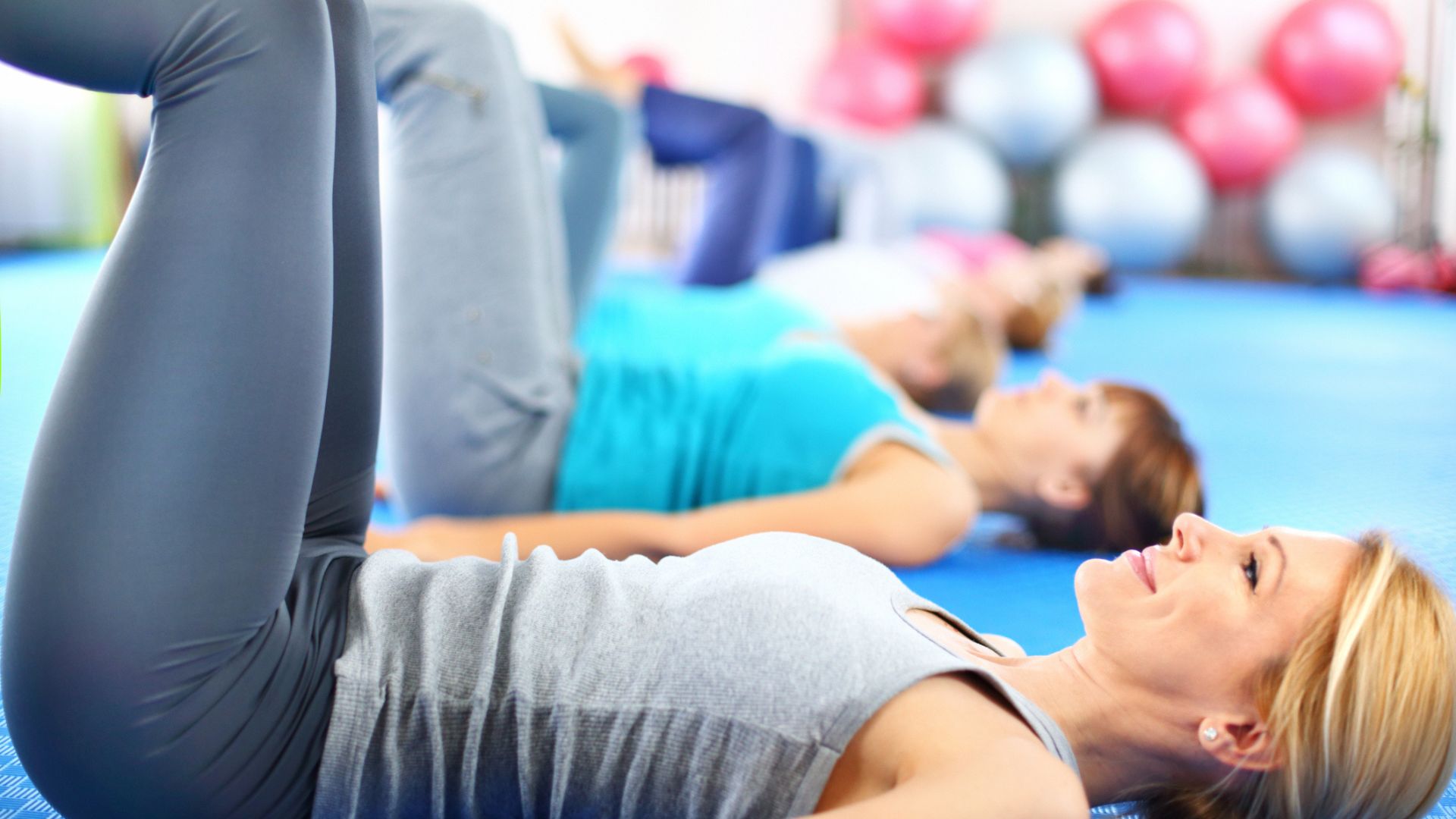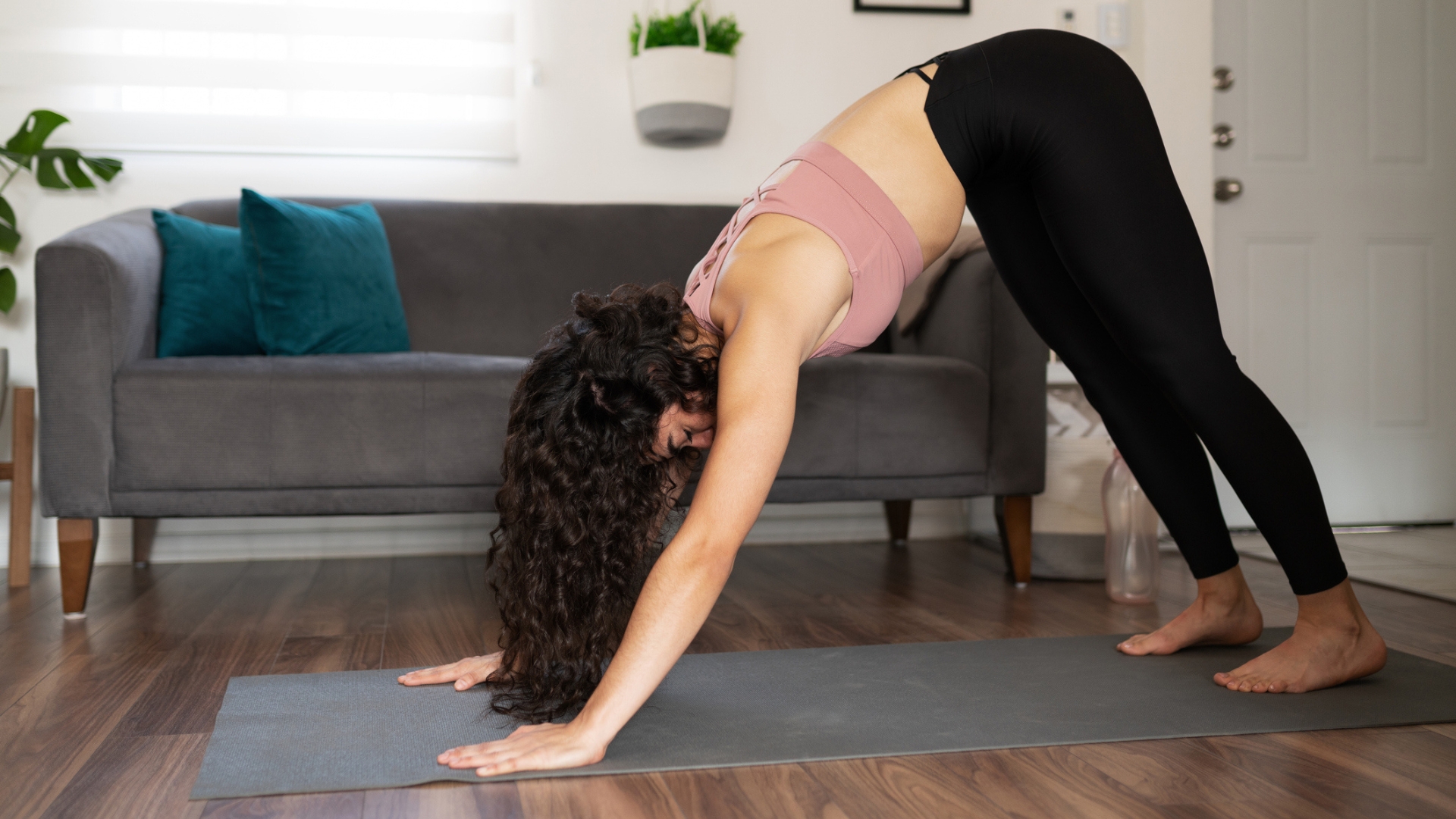Ab rollers vs crunches: what's the most effective core workout?
When it comes to ab rollers vs crunches, the best workout for you could be down to your experience level


In the quest to gain a toned tummy, you may have found yourself pondering the benefits of ab rollers vs crunches.
On the one hand, the best ab rollers offer a nifty way to work the midsection, whilst on the other the crunch is a time-honored midriff move. Both options target the core muscles to help develop that sought after six pack, and can be key when planning the best workouts for abs.
A strong core is important for so many reasons, including posture and stability, in both everyday life (e.g. bending down to pick something up) and fitness-related activities (e.g. running or squatting with a barbell).
If you're sat there wondering 'what exactly is an ab roller?', allow us to explain. Essentially, it's a wheel with handles coming out of either side that can be used to execute a number of exercises targeting various different muscles in the core.
Meanwhile, the classic crunch no doubt needs little explanation. It involves lifting the head and shoulders off the ground from a lying-down position. This isolation exercise (i.e. it targets a specific area) has long been used everyone from gym instructors to those looking to lose weight on the stomach as a way of targeting the upper abdominals.
But when it comes to ab rollers vs crunches, which is best for the most effective core workout? Below we explore the pros and cons of each approach, with the help of Rachael Penrose, a PT and group fitness instructor at F45 training.
Ab rollers: pros
One of the biggest benefit of using an ab wheel (as they're also known) is that it targets several different muscles at once, helping to build overall strength.
Get the Fit&Well Newsletter
Start your week with achievable workout ideas, health tips and wellbeing advice in your inbox.
Rachael reiterates that ab rollers are an overall strength builder as they work several different muscles, hitting all four layers of our abdominals. These include:
- The transversus abdominis, the innermost muscles of the abdomen that help compress the ribs and our organs and keeps the spine stable
- The multifidus muscle and erector spinae, the deep muscles in the back that run alongside the vertebrae to support the spine
- The internal and external obliques, which mainly function as an accessory to the diaphragm to support breathing
- The rectus abdominis, the superficial top layer of our core - AKA your six pack.
Penrose goes on to explain that ab rollers can also help to improve posture, which may suffer if you spend all day slouched at a desk.
What's more, ab rollers are also a much tougher move to pull off than crunches. 'This is because there is little to no waist flexion during the rollout,’ Penrose explains. Essentially, this means that there is no bending motion at the waist, and the torso stays still and rigid through the movement of the ab roller.
Ab rollers: cons
Although ab rollers have their upsides, there are also drawbacks to using them.
This is especially true if you are new to exercise and find that they work too many muscles at once when you're not ready.
‘This is a huge concern as they can put excess pressure on other areas of your body,' says Penrose. 'Using an ab roller could be too much of a progression if your shoulders are not strong enough, or if you are feeling pain in your lower back.'
Despite looking so simple, ab rollers can also be a challenging piece of equipment to use, falling squarely in the realm of 'advanced ab exercises'.
As with any exercise, good form is crucial and, when used incorrectly, other areas of the body aside from the core can take over. This can lead to injury, particularly in the lower back.
‘If you feel excess pressure in these areas that take away from the main focus of your abdominals, you may want to substitute the ab roller for alternative exercises until you feel stronger or have the support of a trainer,' Penrose advises.
Crunches: pros
The humble crunch is one of the best abs workouts for beginners, with Penrose describing them as 'a great option for those who are starting out in their fitness regime.'
'Whilst less muscles are used in comparison to an ab roller, you will be more able to support your lower back when working your core and doing the exercises,' she notes.
This in turn leads to a lower chance of injury, another plus-point for crunches. A good way of supporting your lower back during a crunch is by placing a cushion underneath the tail bone.
Another positive of crunches is that they're generally easier than using an ab roller and require no equipment, meaning they can be done anywhere and anytime.
Crunches: cons
As ever, the biggest risk with crunches is to do with form, with Penrose warning: ‘If they are not performed correctly, you could risk serious injury to your neck.’
To avoid neck pain, while performing a crunch, your spine and neck should be in line. Unsure if you’re doing your crunch properly? See our detailed 'how to do a crunch' guide, which also features some neat variations.
As already noted, crunches also work fewer muscle groups than exercising with ab rollers, specifically targeting the upper abdominals.
In addition, Penrose notes: ‘Your body is in a completely different position during the crunch in comparison to when working with an ab roller, and the movement involves different aspects of your body.’
This makes it a different move to an ab roller as it involves flexion at the waist - not necessarily a 'con', but something to bear in mind when devising your abs workout plan.
Ab rollers vs crunches: summary
Both ab rollers and crunches are useful moves to include within your core workout routine.
Crunches are ideal for everyone from beginners through to the advanced. However, crunches are really only impacting a small selection of core muscles, which makes them less efficient than the ab roller.
As ab rollers work multiple muscles in the core, we’ll award them the exercise of choice out of ab rollers vs crunches. Although ab rollers can be a little tougher to master as they do incorporate more muscles, when you’ve cracked it and can use ab rollers safely, they offer a really thorough core workout. Plus, there are various different movements you can do with an ab roller.
We say, include both moves but if your body feels ready and up for it, prioritise the ab roller to really hit the core.
Lucy is a freelance journalist specializing in health, fitness and lifestyle. She was previously the Health and Fitness Editor across various women's magazines, including Woman&Home, Woman and Woman’s Own as well as Editor of Feel Good You. She has also previously written for titles including Now, Look, Cosmopolitan, GQ, Red and The Sun.
She lives and breathes all things fitness; working out every morning with a mix of running, weights, boxing and long walks. Lucy is a Level 3 personal trainer and teaches classes at various London studios. Plus, she's pre- and post-natal trained and helps new mums get back into fitness after the birth of their baby. Lucy claims that good sleep, plenty of food and a healthy gut (seriously, it's an obsession) are the key to maintaining energy and exercising efficiently. Saying this, she's partial to many classes of champagne and tequila on the rocks whilst out with her friends.
-
 A Pilates instructor says this is the beginner-friendly core exercise everyone should try
A Pilates instructor says this is the beginner-friendly core exercise everyone should tryForget crunches, this is the perfect foundation move
By Alice Porter
-
 Prevent poor posture and release tension from sitting down with these four simple stretches from a yoga instructor
Prevent poor posture and release tension from sitting down with these four simple stretches from a yoga instructorThe daily poses he swears by, no matter what
By Alice Porter